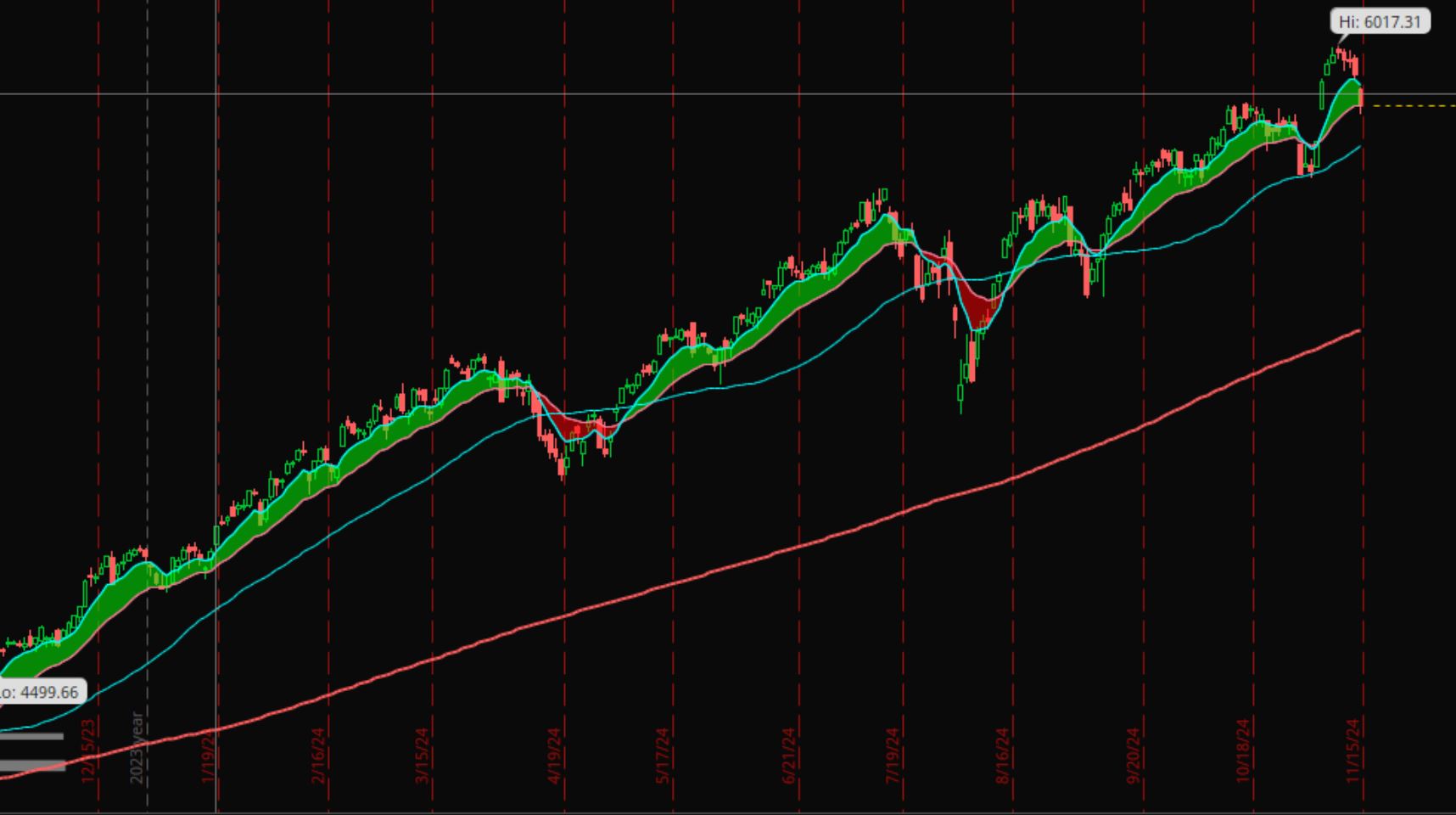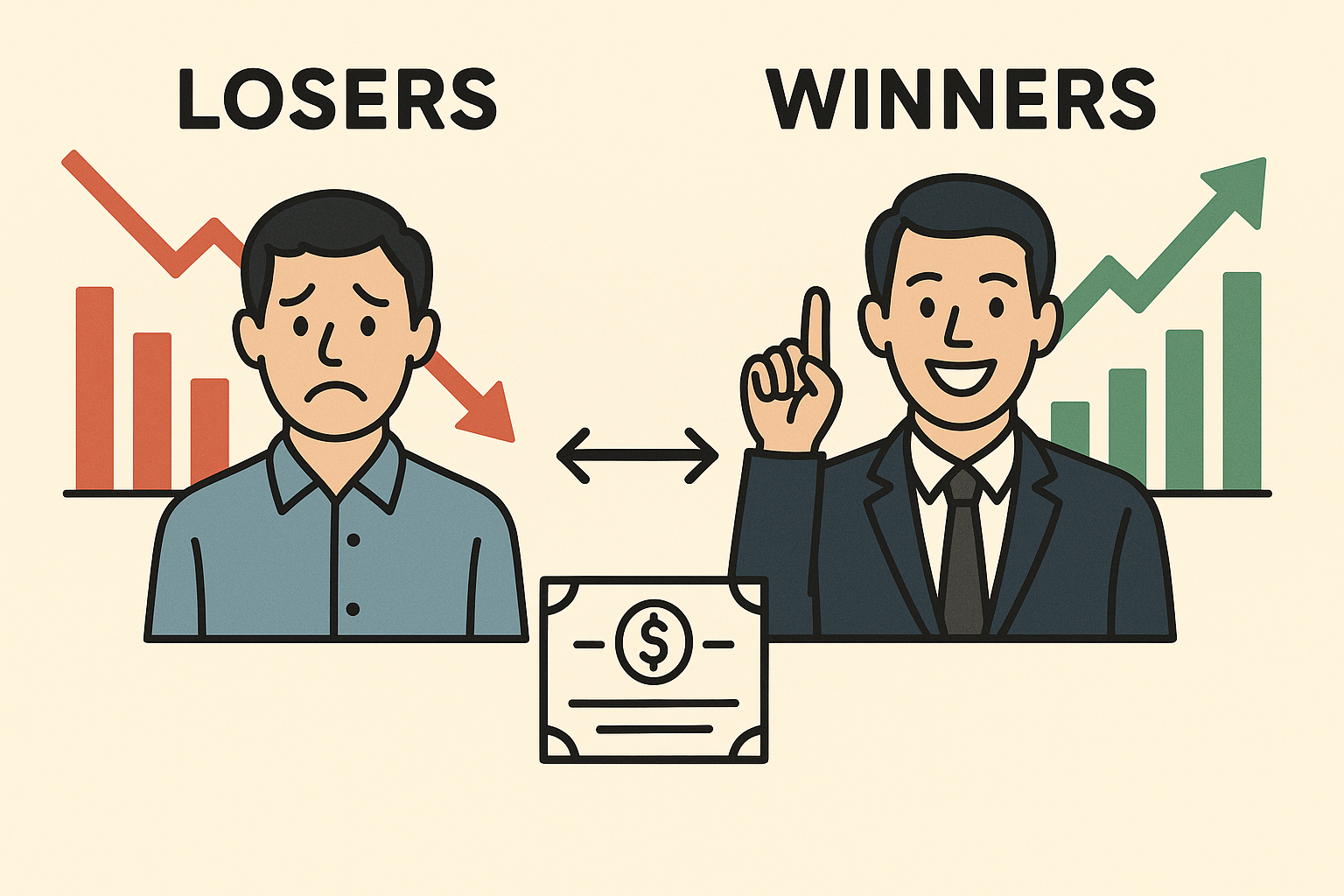Let’s be honest.
The stock market is a place where some people grow their wealth — but most people don’t. For every person who buys a stock, someone else is selling. But in the end, not everyone wins.
So… how many people actually lose money? And what do the winners do differently?
Let’s look at the facts — and what you can learn from them.
📉 Most People Do Worse Than the Market
Everyday Investors
There’s a big research study (called DALBAR) that looked at how regular people invest. Over 30 years, here’s what they found:
- The average investor made around 6% a year
- But the overall market made about 10% a year
That may not sound like a big gap — but over time, it adds up to hundreds of thousands of dollars lost.
Why?
Because many people buy at the wrong time (when prices are high) and sell at the wrong time (when prices are low).
💥 Most Traders Lose Money
People who trade stocks often (day traders, swing traders) do even worse.
Studies show that:
- 70% to 90% of traders lose money
- Only a few — maybe 1% to 5% — make money for years
- Most traders quit within a year because they lose too much
In one study, people who traded the most actually did the worst. They would’ve done better just buying a few good stocks and holding them.
👔 Even the Experts Get It Wrong
What about the pros? People who manage mutual funds or hedge funds?
Most of them don’t beat the market either.
- Over the last 15 years, 9 out of 10 fund managers made less money than a basic S&P 500 index fund
- Even with fancy tools and big research teams, they still lost to the simple approach
🏆 So Who Actually Wins?
A small group of people do really well. Here’s what they usually have in common:
| What They Do | Why It Works |
|---|---|
| Invest long-term in great companies | Gives time for the business to grow |
| Focus on just 10–20 top stocks | Easier to track and understand |
| Stay calm during ups and downs | Don’t panic or chase trends |
| Follow a plan or system | Keeps emotions out of decisions |
🎯 Fewer Stocks Can Be Better
Warren Buffett — one of the best investors ever — said it best:
“Diversification is protection against not knowing what you’re doing.”
That means: If you know your companies well, you don’t need to own 50 stocks.
Holding 10 to 20 great businesses is often much better than spreading your money across 30–40 that you don’t really believe in.
💡 Final Thoughts: Patience Wins
The market is a place where the patient take money from the impatient.
People who lose money:
- Buy because of hype
- Sell too quickly when prices fall
- Hold bad companies too long
- Keep guessing instead of thinking
People who win:
- Buy strong companies
- Let their winners grow
- Cut losers early
- Stick to their plan
You don’t need to be perfect. You just need to be smart, patient, and focused on the long game.












Leave a Reply